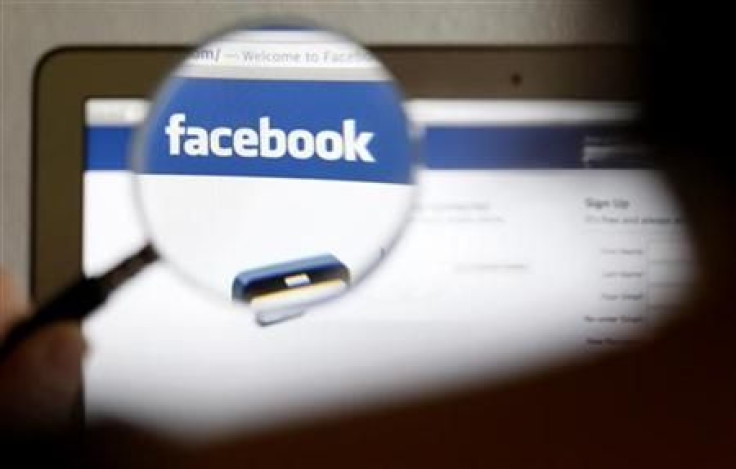IPOs: Minus Facebook, Experts See Better Year Raising $34B
No Facebook! Bankers Relieved By Better 2013 Market For IPOs

The initial public offering market, so badly damaged by last May’s $16 billion IPO by Facebook (NASDAQ: FB), the No. 1 social networking site, is on track to raise as much as $34 billion in U.S. markets and more than $100 billion worldwide, experts said.
Prospects for the U.S. have been improved since the “fiscal cliff” legislation resolved certain tax issues, said Wendy Hambleton, capital markets partner in Chicago with BDO USA, the No. 6 accounting firm. “A little bit of uncertainty has been eliminated,” she said.
Still, there’s global demand for IPOs from various sources, says BDO as well as Renaissance Capital, the Greenwich, Conn., specialist in the sector. Venture capital funds and private equity firms want to see returns on investment in maturing funds. Combined, companies controlled by those two sectors may account for as much as 65 percent of all IPO activity in 2013.
As well, “There’s always interest in technology,” said Hambleton. “It encompasses such a diversity of companies, but people are always interested in investing in something new.”
Last February, the Facebook announcement of its mega-deal, which wasn’t priced until May 17 and then bombed in the after-market, skewed the market, put IPOs of other companies that were either profitable or on the verge of it like Palo Alto Networks (NASDAQ:PANW) on ice and then froze the market until mid-July.
Priced at $38, Facebook shares fell as low as $17.55 in September before rallying last month as well as into January. In midday Wednesday trading, Facebook shares rose to $30.60, their highest since May, before closing at $30.59.
A motions hearing before U.S. District Court Judge Robert W. Sweet in the national class-action suit against Menlo Park, Calif.-based Facebook, its underwriters and NASDAQ OMX Group (NASDAQ:NDAQ) is scheduled for Manhattan on Jan. 23.
By removing Facebook from last year’s U.S. IPO proceeds, BDO expects U.S. IPO proceeds to rise about 28 percent. Renaissance estimates the U.S. total for 2012 was $40.1 billion, or 40.3 percent of the global market. Of interest: The Asia-Pacific IPO total was $41.7 billion, or 41.9 percent of the entire market, a trend that’s likely to continue.
Europe accounted for 10 percent of the 2012 IPO market, while Latin America’s share was only 6.4 percent, Renaissance reported.
More than 60 percent of the 100 investment bankers polled by BDO last month expect Asia to be the top source of IPOs for U.S. exchanges this year, followed by companies from Latin America and Europe.
Promising 2013 IPOs prospectively include Sinopec HK, the refining unit of China’s national oil company; Guangfa Bank, a Chinese regional bank, and Seibu Holdings, a railway and real estate holding company in Japan, whose $12.4 billion value could peg it as the richest of the year.
Two of the top five best-performing 2012 IPOs were technology related, Renaissance tallies show. They are Guidewire Software (NASDAQ:GWRE), of Foster City, Calif., which had a nearly 129 percent return from its IPO price, and Workday Inc. (NYSE:WDAY), the Pleasanton, Calif., human-resources software company managed by the prior heads of PeopleSoft, with a 94.6 percent return.
In Wednesday trading, Guidewire shares rose 43 cents to $31.34, valuing the insurance software specialist at $1.74 billion, while Workday shares rose 62 cents to $52.49, valuing the company at $8.71 billion.
The worst-performing 2012 IPO was China’s Ningbo Cixing Co. (SHE:300307), a knitting machine technology company. Its shares fell 74 percent below the IPO price.
For 2013, the bankers told BDO that health care is likely to the biggest source of new IPOs, followed by technology and biotech. Nearly 70 percent thought those three categories would be the leaders.
“You can understand why,” said BDO’s Hambleton. “Health care is so important, considering demographics, which also includes biotech.”
As of Monday, as many as 283 global companies have indicated plans to raise as much as $200 billion this year, Renaissance said. Some that have explicitly said "no" include Twitter, of San Francisco, where CEO Jack Costolo has said repeatedly any offering won’t come until at least 2014.
© Copyright IBTimes 2024. All rights reserved.












